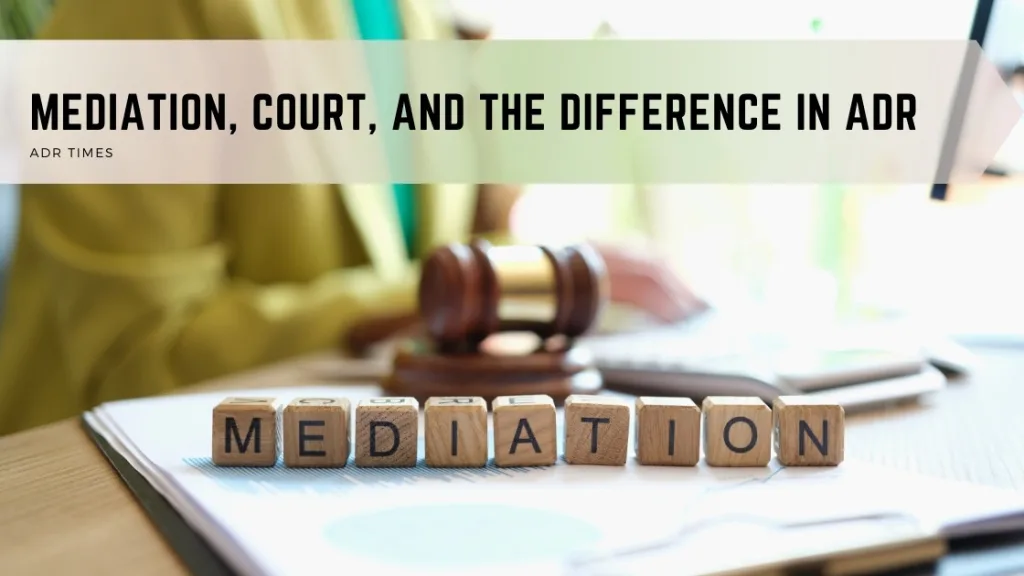Mediation can be an excellent tool for resolving disputes, but unless you have personally participated in mediation or know someone who has, you may not know much about the process. This can cause many people to avoid the process or not even recognize the option.
This article will outline what mediation is, how it is helpful, and what to expect from the process. The goal is to help you evaluate if mediation is a suitable mechanism to resolve your case.
The Mediation Process
The mediation process is a conciliatory process where the parties, their attorneys, and the mediator work through the dispute to reach an agreement. Mediation is like a guided negotiation, allowing the parties to present their needs and concerns to each other while having a person in the middle to help keep conversations on track. A mediation program often allows the parties to understand their issues better and find solutions for everyone involved.
Mediators usually begin the session with an overview of the ground rules, followed by each party outlining the dispute and possible solutions. Then, the parties will speak with the mediator separately to share more about their interests and push discussions toward a resolution.
The mediator will work between the parties to determine a course of action and discuss options, remaining impartial. The parties decide whether to reach an agreement, sign a settlement contract, or move forward with other options.
The Benefits of Mediation
Mediation is a great option as long as the parties understand the vital goal of resolution.
Voluntary
Mediation is voluntary, meaning one party cannot force the other to participate or mediate the dispute. This helps everyone feel like they are on the same page and hoping to reach an agreement, often encouraging further participation.
There are a few exceptions to this rule, the biggest of which is court-ordered mediation. A judge may choose to send a case from the court to mediation with hopes of resolution. This is most common in family court. Another exception is when the parties have previously discussed and agreed that any dispute from a specific contract would be resolved through mediation or other dispute resolution.
Confidential
Mediation is confidential, meaning the discussions and agreements should not be shared with the public. This can be very important in sensitive cases with big names. Additionally, mediators are not allowed to share any information that one person shares with the other unless they are given express permission. This allows the participants to be more open in conversations.
Self-Determination
Another reason many people choose mediation is to have control over the outcome of the conflict. In litigation, the judge or jury will resolve the case, and there is always a fear that it may be resolved against what you would like. Mediation allows you to negotiate for your position, control the outcome, and enforce that through a court order. It also allows you to choose to go to court if you wish.
Save Time and Money
Mediation is often much faster and cheaper than litigation. Courts are often overwhelmed with a backlog of cases, while mediation can usually be scheduled relatively quickly. It is also frequently more affordable because each attorney does not have to prepare for trial or spend lots of time looking for an agreement. However, this only applies if the parties can resolve the dispute at mediation.
Private mediators often charge a fee, but many places offer free or low-cost dispute services to help settle cases.
Allows Non-Legal Issues to be Resolved
Finally, mediation allows the parties to settle the conflict entirely, meaning they can include things in the agreement that they would not be able to in a court order under the law.
Family Court Mediation
Mediation is incredibly popular in family law. It allows families to find a parenting plan for their children and help the other parent reach an agreement or common ground. It is not a counseling service; it aims to help families resolve conflict without addressing all underlying issues. Most mediators will ask that the parents have their lawyer to ensure they talk through the implications of their agreements.
Domestic Violence
Mediation is not a great option in cases of domestic or child abuse because the fear that the child or parent may have of the other parent can be overwhelming and stop negotiations.
Conclusion
Mediation is an excellent tool for resolving issues and avoiding court. You will be prepared to take on the task if you decide it is the right option. Contact ADR Times today to learn more about mediation, court, and alternative dispute resolutions!
Must-read Articles:
- Divorce Mediation Attorney: How They Can Help - July 19, 2024
- Divorce Mediation: What You Need to Know - July 17, 2024
- Negative Reinforcement for Positive Behavior - July 15, 2024



